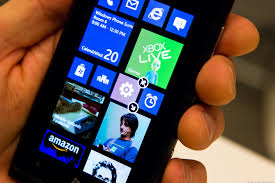Technology
Why Windows Phone was doomed from the start – Microsoft Engineer

It’s almost tragic how Microsoft, with a multi-year head start in the mobile phone market, was completely blindsided by the iPhone. Indeed, it’s somewhat easy to forget that Microsoft, going as far back as 2000, was already putting incarnations of Windows Mobile on PDAs and smartphones.
Even more mind-boggling is that Microsoft CEO Steve Ballmer, even after Apple showed the world where the smartphone market was headed, naively laughed off the notion that the iPhone might pose a strategic threat.
By the time Microsoft got its act together a few years later, it was too little too late. When Windows Phone was introduced in late 2010, the smartphone market had already become a two-horse race, with Apple’s iOS and Google’s Android leading the charge. Despite a slow and steady stream of improvements to the Windows Phone OS over the years, consumers collectively yawned, and sometimes laughed, at Microsoft’s noble, but ultimately fruitless, efforts to take away meaningful market share from iOS and Android.
Despite Microsoft’s vast resources, they simply couldn’t compete in a mobile oriented market that had quickly pegged them as irrelevant. Indeed, even as Windows Phone launched, many were quick to proclaim that the initiative was doomed from the start.
Echoing this viewpoint with some insight ‘from the inside’, former Microsoft engineer Balaji Viswanathan took to Quora last week where he detailed how Microsoft, in going up against both Apple and Google, simply had no chance.
Viswanathan articulates that because Apple and Google were laser focused on mobile, Microsoft, simply by virtue of its Windows and Office monopolies, was unable to make mobile the priority it needed to be.
Microsoft on one end was trying to take on Apple on its #1 product. Apple put most of its energy on iPhone, while phone was just among the 40 things Microsoft did. For a long time, phone division didn’t even come into the top 5 priorities for Microsoft [with a lion’s share of attention going to Windows, Office, Online Services and Servers – for obvious reasons]. This was not wrong, but that is the reality.
On the other end, Microsoft was trying to compete with Android – with the power of Google, Samsung and the whole open source community behind it. Even if Google were selling Android as a proprietary software without other partners, Microsoft would have found it very hard as Google had its powerful range of services [search, maps, mail] to back it up while Microsoft’s comparative services significantly lag those of Google’s.


